2024 Summer College Speakers
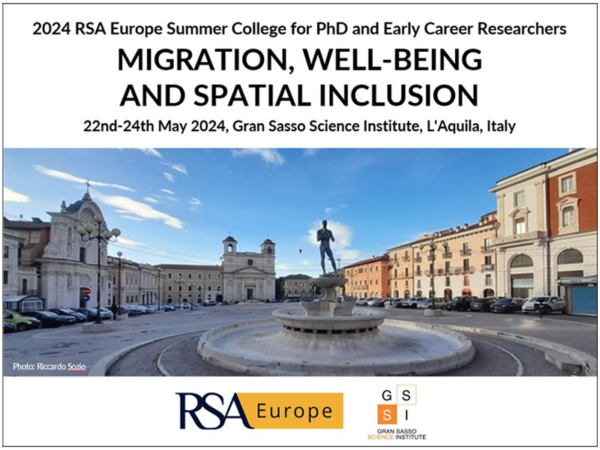
“Home away from Home: Geography and Micro Geography of Immigrants” – Öner, University of Cambridge, United Kingdom
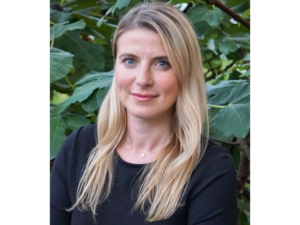
Özge Öner is an Associate Professor in Spatial Economics and Real Estate at the Department of Land Economy and a Fellow in Economics and Land Economy at Sidney Sussex College at the University of Cambridge.
Öner earned her PhD in Economics with a focus on Urban and Regional Economics in Jönköping, Sweden, in 2014. She completed part of her PhD studies at the Regional Economics Applications Laboratory (REAL), University of Illinois. Before Cambridge, she worked as an Assistant Professor at Jönköping International Business School and as a Researcher at the Research Institute of Industrial Economics (IFN) in Stockholm.
With strong ties to Sweden, she remains affiliated to Handelns Forskninginstitut (Institute of Retail Economics) in Stockholm and Centre for Entrepreneurship and Spatial Economics (CEnSE) in Jönköping as a Research Fellow.
Özge’s research deals with migration, labour mobility, micro-geography of segregation and ethnic enclaves, retail and service geography, urban amenities, the geography of entrepreneurship, and political geography.
She is a former recipient of the Handelsbanken Wallander postdoctoral scholarship in Sweden (2015), the Young Investigator Award in Italy (2018), as well as the Young Researcher Award in Sweden (2019) awarded by the Swedish Entrepreneurship Forum.
In addition to her engagement in academia, Özge writes monthly columns at the newspaper Svenska Dagbladet (eng. The Swedish Daily News).
Abstract
In recent decades, Europe has experienced a significant influx of migrants, profoundly reshaping various aspects of its society, economy, and politics. This keynote presentation aims to delve into the diverse migration patterns observed across the continent during this period. With a particular focus on Europe’s cities, I will examine the spatial distribution of immigrant populations within urban areas, emphasizing the importance of understanding the within-city variation. Additionally, I will explore the empirical literature surrounding ethnic enclaves, highlighting their formation and implications for social cohesion and integration.
“Challenges and Methods of Migration Analysis. Scrutiny of Internal Migration Flows” – Vicente Royuela, University of Barcelona, Spain
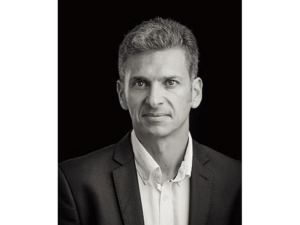
Vicente Royuela is Associate Professor of Applied Economics in the University of Barcelona, and has been Visiting Researcher in the University of Reading (UK) and the University of Illinois at Urbana-Champaign (US). He is member of the Board of Directors of the Quantitative Analysis Research Group (AQR-IREA), and Managing Editor of REGION, the flagship journal of the European Regional Science Association. His research agenda is focused in applied economics and especially in Regional and Urban Economics. In the last years he has been working in migration issues and in urban growth, and particularly in testing the importance of different sources of agglomeration economies, such as network economies and particularly the role of quality of life and consumption amenities in urban growth.
Abstract
This session examines the dynamics of interregional migration flows, leveraging insights from key academic contributions in the field. The discussion centers on the determinants of migration between regions, including economic factors, quality of life, and institutional frameworks.
Methodologically, the session reviews various analytical approaches used to study migration, with an emphasis on quantitative data analysis and econometric modeling. The interplay between push and pull factors and the role of individual and structural conditions in migration decisions are highlighted as critical areas of focus. Specific emphasis will be devoted to the study of gravitational models for flow data, considering the best approximations to the use of this technique. The condensed overview will provide the basics for understanding the complexities of interregional migration and its significance for both academic research and policy-making.
“Drivers of Interregional Migration – Recent Evidence and Approaches” – Annekatrin Niebuhr, Institute for Employment Research, Kiel University, Germany
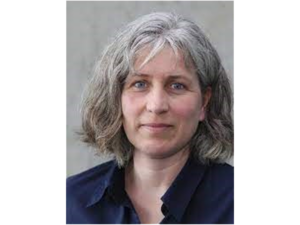
Annekatrin Niebuhr is Professor of Empirical Labour Economics and Spatial Econometrics in the Department of Economics at Kiel University and senior researcher in the Regional Research Network of the Institute for Employment Research. She is an economist and interested in research at the intersection of regional science and labour economics. Recent research focuses on interregional and international migration, regional economic effects of the Covid-19 pandemic and learning benefits of working in large cities. Her research has been published in academic journals such as Regional Studies, Journal of Regional Science, Cities, and Papers in Regional Science.
Abstract
Many European regions are currently experiencing a significant population decline and, related to this, are increasingly confronted with labour shortage. Migration is an important factor behind changes in regional labour supply and the local level of human capital. A region’s ability to attract residents thus becomes more and more important for its growth prospects. This presentation will provide a review of recent research on the drivers of interregional migration. After briefly discussing earlier contributions to the topic it will focus on studies that consider heterogenous effects, examine whether the Covid-19 pandemic has changed migration decisions or investigate how xenophobic behavior affects the migration balance of regions. The presentation will also discuss quantitative approaches such as machine learning and diff-in-diff models that are applied in these studies.
“Spatial Dimension of Well-being and Impact of EU Place-based Policies” – Antonella Rita Ferrara, University of Calabria, Italy

Antonella Ferrara is a Senior Assistant Professor (RTD-B) in Applied Economics at the Department of Social and Political Sciences of the University of Calabria (IT).
From 2017 to 2022, she worked as a Research Economist at the Competence Centre on Microeconomic Evaluation (CC-ME) of the European Commission, Joint Research Centre (JRC).
Previously, she was a postdoctoral researcher at the Department of Economics of the University of Genoa and at the Department of Economics, Statistics and Finance of the University of Calabria.
She has a Ph.D. in Applied Economics from the University of Calabria and has been a Visiting Researcher at the Department of Economic Geography of the Rijksuniversiteit Groningen (NL).
Her research interests range from spatial science and inequalities, to firms and industrial organisation, to counterfactual policy evaluation and applied microeconometrics.
Abstract
The presentation will explore the nuanced domain of well-being at the regional level and discuss its definition in the context of urban spatial models. The presentation will also assess the interplay between multidimensional well-being and place-based policies, with particular focus on EU cohesion policy. By examining both the intensive and extensive margins of transfer, the discussion aims to unravel the impact of such policies on regional develoopment. The presentation will conclude by exploring the key determinants and the inherent heterogeneity of regional absorptive capacity, providing insights that pave the way for future research.
“Measuring and Understanding Well-being Across Space. An International Comparative Perspective” – Paolo Veneri, GSSI, L’Aquila, Italy
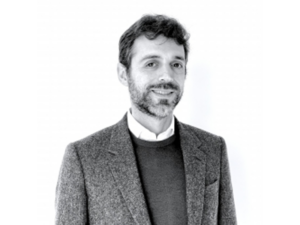
Paolo Veneri is Professor of Economic Policy at the Gran Sasso Science Institute. Prior to that position he was Deputy Head of the Economic Analysis, Data and Statistics Division at the OECD Centre for Entrepreneurship, SMEs, Regions and Cities. At the OECD he led the OECD programme on subnational analysis and statistics and the OECD Geospatial Lab. He was Secretary of the Working Party on Territorial Indicators. Paolo has led research on a wide range of topics connected to urban and regional development, including on measuring urbanisation, understanding spatial economic and well-being inequalities, and the role of migration for regional development. Paolo holds a PhD in Economics from the Marche Polytechnic University and he has published numerous papers in academic journals, especially in the field of urban and regional economics. He was an external professor of Urban and Regional Economics at the Paris Dauphine University. He also authored several OECD flagship publications including “Cities in the World. A New perspective on urbanisation” (2020), “Regions and Cities at a Glance” editions, “Divided Cities” (2018), “The Geography of Firm Dynamics” (2017), “Making cities work for all” (2016), “How’s Life in your Region?” (2014) and “Rural-urban partnerships: an integrated approach to economic development” (2013).
Abstract
The presentation will provide a rationale for using a well-being approach to assess progress of society in cities and regions. Long-standing differences in economic development across places will be compared to those emerging by using a well-being approach. The specific characteristics of well-being metrics, their use in research as well as in different phases of policy making will be reviewed, and recent major measurement initiatives will be showcased. Finally, the presentation will provide recent evidence, at the global level, on spatial differences in subjective well-being (i.e. happiness and life satisfaction), especially between urban and rural settings.
Maria Giovanna Brandano, Gran Sasso Science Institute, Italy

Maria Giovanna Brandano is Assistant Professor in Applied Economics at the Gran Sasso Science Institute (GSSI), L’Aquila. She holds a Ph.D in Law and economics of production systems (field: Economics) from the University of Sassari (Italy) in 2015 with a thesis on the empirical analysis of tourism externalities in Italy. She has been post-doctoral research fellow at the Free University of Bolzano and at the University of Sassari and CRENoS (Centre for North South Economic Research) between 2015 and 2018.
Her main research interests are applied economics, tourism economics, tourism externalities, cultural economics, wine economics and policy evaluation, with particular focus on tourism taxation.
She has published in journals as Growth and Change, Tourism Economics, International Journal of Tourism Research, The World Economy and Socio-Economic Planning Sciences.
Daniela Carl, RSA Europe / RSA
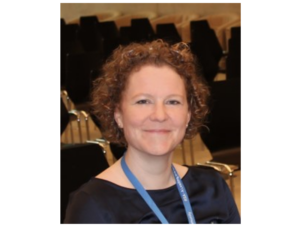
Daniela Carl worked previously in research and business development roles at HEI in Germany, New Zealand and the UK, as an events and tourism consultant and lecturer. Daniela joined the RSA in 2013, bringing wide-ranging international conference management experiences, academic networks and a strong entrepreneurial approach to the Association. Daniela’s job portfolio includes business development and global partnerships, membership, academic journals, territorial networks, marketing, conferences/events and the HQ office’s management. She is also the secretary of the RSA’s Research Committee.
Click here to return to Summer College webpage.
